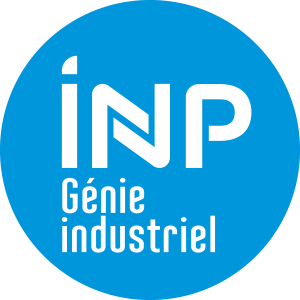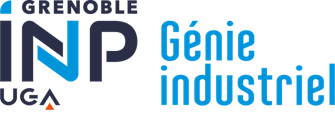Number of hours
- Lectures 3.75
- Projects -
- Tutorials 18.75
- Internship -
- Laboratory works -
- Written tests -
ECTS
ECTS 6.0
Goal(s)
The objectives of this course is to develop competencies in designing your own research in industrial Engineering and Operations management
The course is organized in two parts
- A series of lectures that explore research methodologies and methods.
- An advanced research project where students are expected to write their research proposal concerning their master thesis ( for Master Students) or concerning a research topic for Engineering diploma students.
Students would learn to be able to :
- Understand the different research methodologies mainly used in operations management and engineering design.
- Choose and justify relevant methods to develop their own research
- Review and analyze research papers
- Present their research in publications.
- Write a research proposal
Content(s)
LECTURE CONTENT
The course is organized in 3 main parts
1 INTRODUCTION TO RESEARCH IN OPERATIONS MANAGEMENT AND DESIGN.
2 Reading a paper
3 Literature search
4 Design your research project
5 Research validation
ADVANCED RESEARCH PROJECT
OBJECTIVE
This exercise aims to train students to formulate and write a research proposal. Writing a research proposal is a complex and important task required before starting research project.
A research proposal is a document written by a researcher that provides a detailed description of the proposed program. Research proposals contain extensive literature reviews and must offer convincing support of need for the research study being proposed by identifying the gaps that are in the literature.
A research proposal is intended to convince others that you have a worthwhile research project and that you have the competence and the plan to complete it.
PROJECT ORGANIZATION.
Students are expected to write a research proposal (4000 words ) on the subject they have chosen to address.
• For Master students : Research proposal is related for their master thesis.
• For other students : Research proposal is built from a topic defined by a senior researcher.
Three intermediate deliverables are structured to guide students through the proposal writing process.
DELIVERABLE 1: PROJECT PLANNING [DUE MID OCTOBER]
As each student is working under the direction of a senior researcher, student is tasked with planning the meetings with their own directors. Strategic help can be provided by professor in charge of the course and during the “researching operations management” course.
DELIVERABLE 2: FIRST DRAFT OF RESEARCH QUESTION
Based on the understanding of your reseach project through the discussions with your supervisors and some elements of literature, you have to set up a first research question and the context of your research.
AUDIT 1: Is dedicated to present your understanding of the context, the topic and formulate a research question.
D3 - LIST OF RELEVANT PAPERS -
You must start to organise your papers using Mendeley or Zotero and select relevant papers (6 minimum).
D4 – VALIDATION METHODS
You will have to define how you plan to validate your hypothesis, or validate your results.
This deliverable also includes the reference papers you consider for your work.
AUDIT 2: is dedicated to present you draft of the research proposal that will be discussed by the tutoring team.
D5 - DRAFT OF THE RESEARCH PROPOSAL
You present here the first draft of your research proposal. This proposal will be cross evaluated by your colleagues and discussed in order to improve it.
D6- RESEARCH PROPOSAL (FINAL DELIVERABLE)
Your research proposal based on the proposed template and that contains : Context, literature review and gap analysis, formulation or the research question, validation method and expected outcome.
It is an educational exercise to enable students to learn about the process of defining a research project.
This course is an advanced master student course who have to prepare master thesis or final project.
Not open to bachelor students.
Note =0,1*Audit 1+0,1*Audit 2+0,8*FINAL DELIVERABLE
Session 2 = Oral exam based on research proposal and paper reading
The exam is given in english only 
The course exists in the following branches:
- Curriculum - Engineer IPID apprentice program - Semester 9 (this course is given in english only
 )
) - Curriculum - Master 2 GI SIE program major SPD - Semester 9 (this course is given in english only
 )
) - Curriculum - Engineer student Master PD - Semester 9 (this course is given in english only
 )
) - Curriculum - Master 2 GI GID major DPD - Semester 9 (this course is given in english only
 )
) - Curriculum - Engineer student Master SCM - Semester 9 (this course is given in english only
 )
) - Curriculum - Master 2 GI SIE program major SOM - Semester 9 (this course is given in english only
 )
) - Curriculum - Master 2 GI GID major GOD - Semester 9 (this course is given in english only
 )
)
Course ID : WGURESE4
Course language(s): 
You can find this course among all other courses.
Amundson, S. D. (1998). "Relationships between theory-driven empirical research in operations management and other disciplines." Journal of Operations Management 16(4): 341-359.
Avenier, M.-J. (2009). Drawing upon Practitioners' Experience to Construct Academic Knowledge about Strategizing: An Integrative Methodological Framework. 25th Egos Colloquium, Barcelona.
Blessing, L. and C. Chakrabarti (2009). DRM, a design research methodology, Springer Verlag.
Calabrese, G. (1997). "Communication and co-operation in product development: a case study of a European car producer." R&D Management 27(3): 239-252.
Cantamessa, M. (2003). "An empirical perspective upon design research." Journal of Engineering Design 14(1): 1 - 15.
Coughlan, P. and D. Coghlan (2002). "action research for operations management." International Journal of Operations and Production Management 22(2): 220-240.
Eisenhardt, K. M. and M. E. Graebner (2007). "Theory building from cases: opportunities and challenges." Academy of Management Journal 50(1): 25-32.
Forza, C. (2002 ). "Survey research in operations management." International Journal of Operations and Production Management 22(2): 152-194.
Handfield, R. B. and S. A. Melnyk (1998). "The scientific theory-building process: a primer using the case of TQM." Journal of Operations Management 16(4): 321-339.
Karlsson, C. (2009). Researching Operations Management. Researching Operations Management. New York, Routledge: 322.
Lewis, M. W. (1998). "Iterative triangulation: a theory development process using existing case studies." Journal of Operations Management 16(4): 455-469.
Malhotra, M. K. and V. Grover (1998). "An assessment of survey research in POM: from constructs to theory." Journal of Operations Management 16(4): 407-425.
McAdam, R., T. O'Hare, et al. (2008). "Collaborative knowledge sharing in Composite New Product Development: An aerospace study." Technovation 28: 245-256.
Melnyk, S. A. and R. B. Handfield (1998). "May you live in interesting times ? the emergence of theory-driven empirical research." Journal of Operations Management 16(4): 311-319.
Meredith, J. (1998). "Building operations management theory through case and field research." Journal of Operations Management 16(4): 441-454.
O'Leary-Kelly, S. W. and R. J. Vokurka (1998). "The empirical assessment of construct validity." Journal of Operations Management 16(4): 387-405.
Petersen, C. G., G. R. Aase, et al. (2011). "Journal ranking analyses of operations management research." International Journal of Operations & Production Management 31(4): 405-422.
Pool, A., J. Wijngaard, et al. (2011). "Lean planninginthesemi-processindustry,acasestudy." International Journal of Production Economics 131: 194-203.
Rungtusanatham, M., C. Forza, et al. (2005). "TQM across multiple countries: Convergence Hypothesis versus National Specificity arguments." Journal of Operations Management 23(1): 43-63.
Rungtusanatham, M. J., T. Y. Choi, et al. (2003). "Survey research in operations management: historical analyses." Journal of Operations Management 21(4): 475-488.
Saurin, T. A., G. A. Marodin, et al. (2011). "A framework for assessing the use of lean production practices in manufacturing cells." International Journal of Production Research 49(11): 3211-3220.
Schultze, U. and M. Avital "Designing interviews to generate rich data for information systems research." Information and Organization 21(1): 1-16.
Soteriou, A. C., G. C. Hadjinicola, et al. (1999). "Assessing production and operations management related journals: the European perspective." Journal of Operations Management 17(2): 225-238.
Swink, M. (1999). "Threats to new product manufacturability and the effects of development team integration processes." Journal of Operations Management 17(6): 691-709.
Theoharakis, V., C. Voss, et al. (2007). "Insights into factors affecting Production and Operations Management (POM) journal evaluation." Journal of Operations Management 25(4): 932-955.
Voss, C., N. Tsikriktsis, et al. (2002). "Case research in operation management." International Journal of Operations and Production Management 22(2): 195-219.
Wacker, J. G. (1998). "A definition of theory: research guidelines for different theory-building research methods in operations management." Journal of Operations Management 16(4): 361-385.
Wacker, J. G. (2004). "A theory of formal conceptual definitions: developing theory-building measurement instruments." Journal of Operations Management 22(6): 629-650.
Yin, R. K. (2009). Case Study Research: Design and Methods, Fourth edition.



